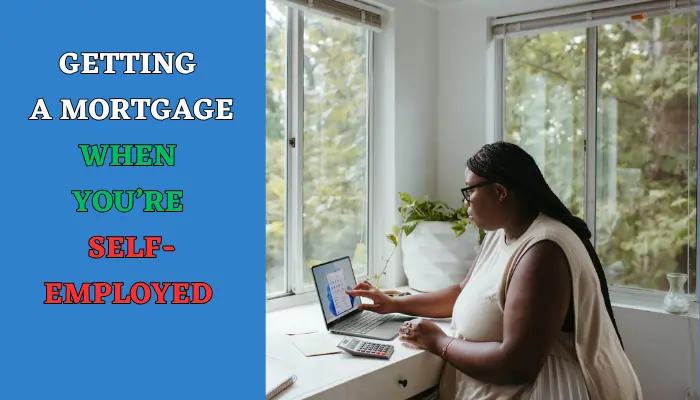Navigating the mortgage application process when you’re self-employed is often unique and challenging.
Unlike traditional employees with predictable income streams and work histories, you might face additional hurdles in proving your financial stability and creditworthiness.
In other words, it’s crucial to be well-prepared and proactive when seeking mortgage financing as a freelancer.
These tips and resources can get you on the right track!
What Do You Need To Show Lenders?
In general, lenders want to see a bit more from self-employed individuals.
Here are a few examples:
- Lenders want to see a consistent and stable income history. They typically require at least two years of tax returns and financial statements that demonstrate a reliable stream of income.
- A high credit score (680 or above) is essential because it reflects responsible credit management and lower risk for the lender.
- Lenders prefer freelancers with a low debt-to-income (DTI) ratio, which is the percentage of your monthly gross income that goes toward paying debts. Shoot for a DTI ratio of 43% or lower.
- You’ll need enough cash reserves to cover several months of living expenses and mortgage payments. That way, the lender can trust that you’ll make payments consistently, despite any unforeseen challenges.
How Can You Prepare Financially?
Finally, here are some ways to shore up and organize your finances so that you can improve your prospects of finding a home loan:
- Obtain a copy of your credit report from the major credit bureaus and review it for accuracy. Dispute any errors or inaccuracies, and work on improving your credit score if necessary.
- Buttress your budget with a home warranty; by understanding home appliance coverage options, you can select a plan that best protects your home and minimizes future financial stress.
- Gather all necessary financial documents (e.g., tax returns, pay stubs, proof of assets, etc.), and organize them in a clear and easily accessible manner to streamline the application process.
- Start saving for a down payment well in advance; a larger payment can improve your chances of mortgage approval and result in better loan terms.
What Are Common Mortgage Challenges Freelancers Face?
We mentioned that self-employed individuals usually face unique challenges when applying for mortgages. These are some of the most common:
- Freelancers often have fluctuating incomes, making it difficult to prove a consistent and stable income stream. Your lender might require more financial documentation (e.g., tax returns, profit-and-loss statements, bank statements, etc.) to verify your earnings.
- Mortgage lenders typically ask for more extensive documentation from self-employed applicants, such as business licenses, client contracts, and detailed financial statements.
- Self-employed individuals often take advantage of various tax deductions to reduce their taxable income. This can create challenges during the mortgage application process because lenders use the net income reported on returns to determine eligibility.
The mortgage application process presents distinct challenges for freelancers, but it is by no means insurmountable.
As the world of work continues to evolve and embrace non-traditional employment, the mortgage industry will also adapt and offer more tailored solutions to support the diverse workforce.
You can demonstrate your financial responsibility and stability to lenders by taking proactive steps like those above and using all the resources at your disposal!


